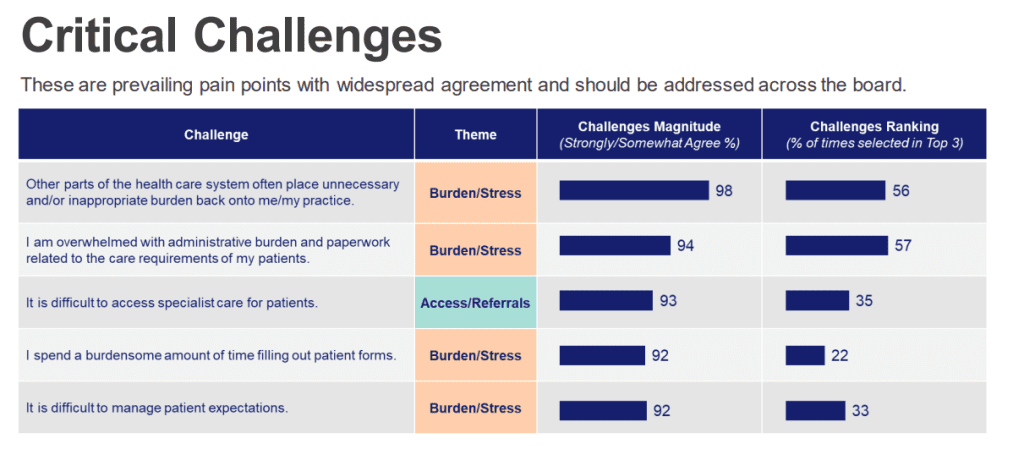The number of Londoners without a family doctor is increasing because there are not enough available.
Today, the Ontario College of Family Physicians (OCFP) revealed new information showing that 84,000 residents in the London region do not have a family doctor. This situation applies to 2.3 million Ontarians in total.
The OCFP predicts that if the shortage is not addressed, the number of people without a family doctor in London and Middlesex will almost double to 163,077, and across the rest of the province, it will reach 4.4 million.
Dr. Eric Wong, a board member of the OCFP and a family doctor in London, states that he is frequently asked if he is taking on new patients, demonstrating the challenging situation faced by many Ontarians.
Dr. Wong explains that one part of the problem is the lack of adequate health-care teams to support family doctors, resulting in additional responsibilities for the doctors.
According to Wong, having more family doctors would lead to fewer hospitalizations for people with chronic diseases, ultimately reducing deaths and keeping people healthy. Without enough family doctors to help patients, more Ontarians will become ill and cost the system more money in the long term.
Many doctors are burdened with nearly 20 hours a week of administrative tasks such as completing sick notes, taking away valuable face-to-face time with patients. Lack of support and compensation compared to inflation acts as a deterrent for family doctors to continue their practice.
Data suggests that almost 75 percent of patients in Ontario do not have access to a team-supported family doctor. In London, only 27 percent of residents have a family doctor who works on a team.
Wong believes that with fewer administrative tasks, they can devote more time to patients who need it.
Several factors contribute to the shortage, including challenges in retaining doctors. A survey conducted on behalf of the OCFP showed that 65 percent of family doctors plan to leave or change their practice in the next five years. Additionally, many family doctors are expected to retire, and new graduates do not meet patient demands.
There's a clear decreasing trend in family doctors opting for comprehensive medicine, from birth to death.
Wong suggests that other healthcare providers on the team can handle patient issues that do not require a family physician's time and work, allowing family doctors to look after more patients.
The OCFP is urging the Ford government to increase healthcare investments to support family physicians, thereby reducing strain on emergency rooms and hospital services. They are calling for urgent assistance to help family doctors and their patients.
“We are getting reports from our emergency room, doctors, colleagues and specialists who tell us that they are seeing a lot more patients who have unmanaged illnesses, which typically means patients with chronic diseases and no family doctor,” Wong explains. “These diseases keep getting worse, to the point where they have to go to the emergency room. And we really want to change this situation around.”
The OCFP aims to get this support in various ways, including reducing the administrative burden by getting rid of employer-required sick notes, increasing support for team or family doctors, and ensuring fair payment. Doctors who manage their clinics as small businesses are struggling to keep up with the increasing costs needed to keep their clinics open.



